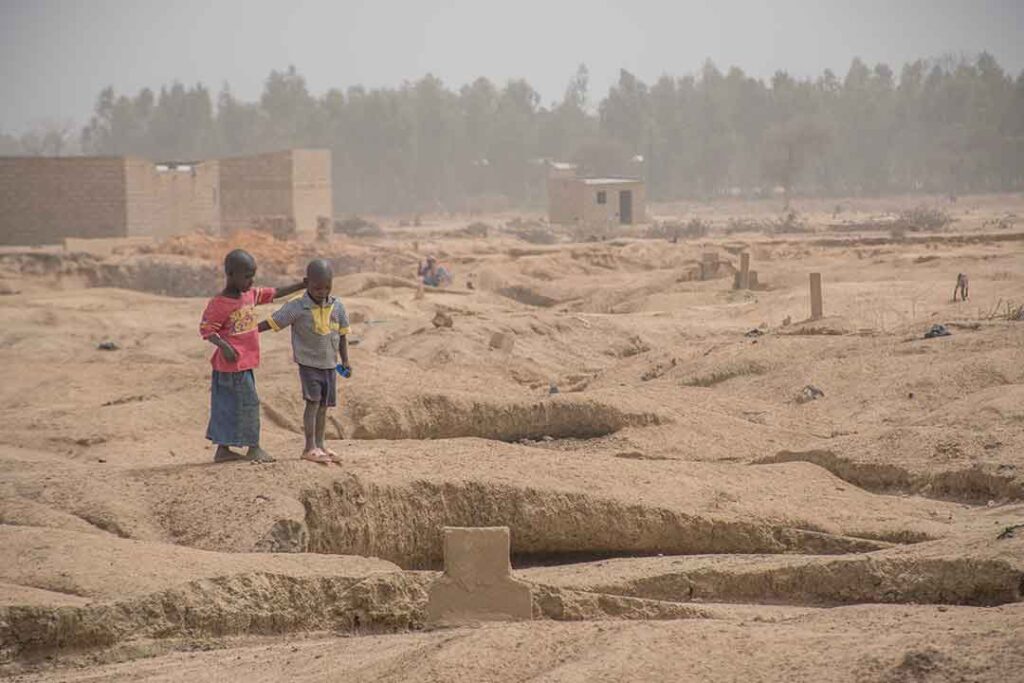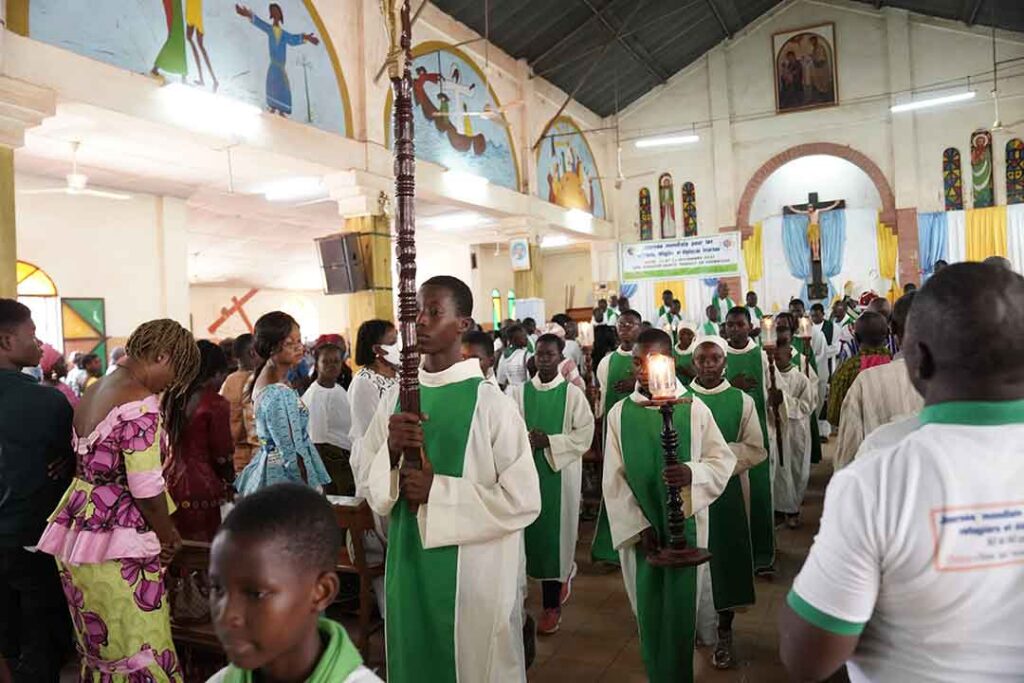Burkina Faso. “The Christians we accompany do not know if they will survive beyond 24 hours”
The prior-general of the Missionary Brothers of the Countryside (FMC), Fr Pierre Rouamba, speaks to Aid to the Church in Need (ACN) about what it is like to serve the Christian population in Burkina Faso, one of the most dangerous regions in the world.

Your congregation is active in several West African countries. What is life like in this region?
The political context is very turbulent. Burkina Faso, where our regional headquarters is located, recently suffered two coups d’état. Insecurity is rife in Mali, Burkina Faso, Togo, and Benin, where our province is based, and Christians are suffering. In 2022, Burkina Faso was the country with the most anti-Christian attacks in the world.
Evangelisation in these countries is recent, dating back no more than 150 years, and in most regions less than 100 years. All four countries have been hard hit by Islamic terrorism, Mali in particular, but also Burkina Faso, where tensions and persecution are on the rise. Christians are affected on a daily basis by the appalling actions of Al Qaeda and the Islamic State.
Can you tell us a bit about what it is like to minister amidst these dangers?
I spent Easter in Kompienga, in Burkina Faso, in a very special atmosphere, because this place is isolated from the rest of the world, cut off by mines and checkpoints, which are manned by terrorists. We can only get in by helicopter. Around Pentecost 2023 the terrorists began to target the local population. Many people were killed or seriously injured and had to be air-lifted out. The terrorists have also seized livestock and are doing everything they can to get the population to either convert or evacuate. If people refuse to convert to Islam they are forced to leave, but as the roads are blocked, they are left to wander around in the forest with no possessions, and many die due to lack of food and care.

In one parish for which we are responsible , a group of women tried to break through the blockade, thinking that the terrorists would not attack them. However, many of them were held and raped. Some were held for a long time to be used as sex slaves and only returned after several weeks, pregnant. These are real tragedies that are not reported in the media.
What plans does the congregation have for the future?
Our next major project is the opening of our regional house in the diocese of Ouagadougou, in Burkina Faso. This is also where we want to bring together and train lay people to be able to send them on mission to difficult places, and to bring the Gospel to rural populations for the first time.
We are worried about the future. How can forgiveness be achieved in the long term? Because forgetting is impossible. This is one of the reasons why we would like to set up support units to offer spiritual and psychological support. Many people come to us simply to be listened to.
We want to look to the long term, and in particular the post-crisis period, to welcome and accompany the many victims of violence. Many people have seen their loved ones’ throats slit, beheaded, raped, or be reduced to sexual slavery. Children have been born because of these rapes. When all this is over how will we be able to have a discourse that is consistent with the Gospel? We will have to heal all these wounds, whether physical or psychological. The pastoral work promises to be immense.
There are dangers for the clergy as well. Two of your brothers were kidnapped in 2021, for example…
Yes, and what happened is, I dare to say, a miracle. They were stopped at a checkpoint by terrorists who took them blindfolded into the forest, mistreated them, searched them, questioned them about their mission and their apostolate and, of course, asked them to convert to Wahabi Islam, which is doing so much damage to a country that was once an example of interreligious harmony.
Our brothers spoke to them in a genuine spirit of peace, without anger or acrimony. When the terrorists asked them to pray the Islamic prayer with them, they gently refused, explaining that as Christians they prayed with the Psalms, and that true prayer is a heart-to-heart with God, and cannot be something imposed from outside. Despite the harassment, they remained peaceful, responding to violence with charity. Impressed, the terrorists finally drove them back to the road and freed them. We thank God for this, it is a sign that love can triumph over hate.
How has all this affected the people’s faith?
It is truly striking to note that Christians who had to some extent abandoned religious practice before the crisis, are returning to the faith at a time when the terrorists are doing what they can to extinguish Christianity. While the terrorists prevent Christians from gathering in churches, families get together in their homes to rekindle the flame of faith through catechism classes and joint celebrations when there are no priests.

It is precisely because these Christians are directly persecuted that they deepen their bond with Christ. The blood of the martyrs is the seed of Christians, in a particular and current way here in Burkina Faso. In Kompienga, under fire from terrorists, requests for baptism are pouring in, and catechism classes are continuing.
Christians who suffer hatred for their faith have two options. They can either seek salvation outside God, by rebelling against Him, or they can seek it in the heart of Jesus Christ Himself. Our Christians have this special grace to understand and to place their lives in the hands of their Saviour.
What is the charism of your community?
Our congregation was founded at the height of the Second World War, in 1943, in France, to devote itself to pastoral work in rural areas. This is still at the heart of our work today, particularly in West Africa. We remain in the most economically and socially deprived areas, sharing the life of rural populations and being a seed of the Gospel.
We are very often in contact with Muslims or people who have not yet heard of Christ. We are systematically opening doors to the Gospel!
Our charism is to bring everything back to Jesus Christ himself, joys, or sorrows, and to bring them back to the Redeemer in thanksgiving, despite the difficulties, which are numerous at the moment. We want to be a sign of Christian hope in the midst of desolation. We are accompanied by Christ, because He Himself went through the suffering that we are going through. For the Christians we accompany, the time perspective does not go beyond the next 24 hours. We do not know if we will survive beyond the next day. This forces us to deepen our personal relationship with Him.
Through our partnership with ACN, we are experiencing true solidarity, specially through a recent food support project for refugees and displaced persons that we implemented in one of the parishes entrusted to us, in Pama, in the diocese of Fada N’Gourma.


